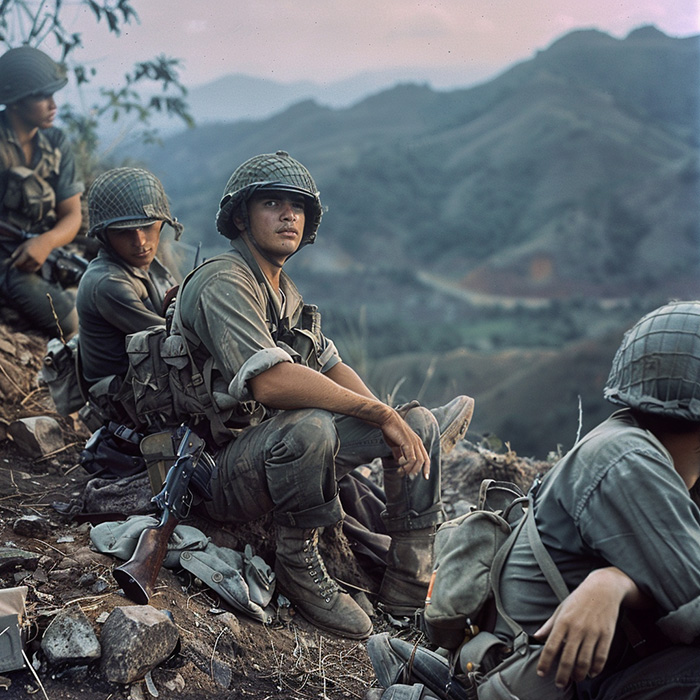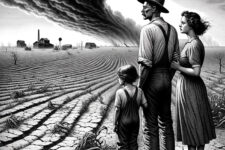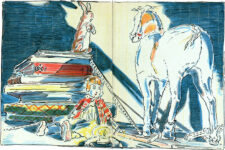
They shared the weight of memory. They took up what others could no longer bear. Often, they carried each other, the wounded or weak. They carried infections. They carried chess sets, basketballs, Vietnamese-English dictionaries, insignia of rank, Bronze Stars and Purple Hearts, plastic cards imprinted with the Code of Conduct. They carried diseases, among them malaria and dysentery. They carried lice and ringworm and leeches and paddy algae and various rots and molds. They carried the land itself—Vietnam, the place, the soil—a powdery orange-red dust that covered their boots and fatigues and faces. They carried the sky.
― Tim O’Brien, The Things They Carried
Tim O’Brien’s novel “The Things They Carried” is a seminal work of fiction that explores the experiences of American soldiers during the Vietnam War. Through a blend of autobiography, storytelling, and historical narrative, O’Brien crafts a poignant examination of the physical and psychological burdens carried by soldiers. This particular passage is emblematic of the entire book, encapsulating its themes, style, and emotional depth.
At its surface, the quote lists the literal and figurative loads borne by the soldiers: physical items, emotional burdens, diseases, and even the very landscape of Vietnam itself. This enumeration serves several purposes:
-
Literal Weight: On one level, O’Brien details the physical objects the soldiers carried, ranging from military equipment and personal items to symbolic awards like Bronze Stars and Purple Hearts. This inventory underscores the heavy, tangible burdens soldiers must bear in war, contributing to the realism and immersive detail of the narrative.
-
Psychological and Emotional Burden: The passage also delves into the less tangible, yet heavier, loads the soldiers carried: memories, diseases, and emotional scars. By juxtaposing these with physical items, O’Brien highlights the profound psychological impacts of war, the haunting memories, and the brotherhood formed through shared suffering.
-
Shared Burden and Interconnectedness: The repeated use of “they carried” emphasizes the collective experience of the soldiers, suggesting a communal bearing of burdens. This motif of shared suffering and mutual dependence is central to understanding the deep bonds formed in the crucible of war, where soldiers often had to physically carry each other, in addition to sharing the weight of emotional and psychological trauma.
-
The Land and Environment: By including the land—Vietnam’s soil, dust, and landscape—as part of what the soldiers carried, O’Brien extends the notion of burden to include the environmental and geographical challenges of warfare. The land itself becomes a character, an ever-present force that shapes their experiences and memories. This aspect highlights the deep imprint of place on the psyche of those who fight and live within it.
-
The Universality of War’s Burdens: While specific to the Vietnam War, the passage transcends its immediate context to comment on the universal experience of soldiers in combat. The detailed enumeration of what they carried is a powerful device to convey the enormity of their burdens, making the narrative relatable to anyone who has experienced or can imagine the trials of war.
This quote from “The Things They Carried” is a microcosm of O’Brien’s broader exploration of war, memory, and the human condition. It blends the concrete and the abstract to convey the complex tapestry of soldiers’ experiences, making a profound statement on the nature of war, the bonds formed through shared adversity, and the indelible marks left on those who endure it.









